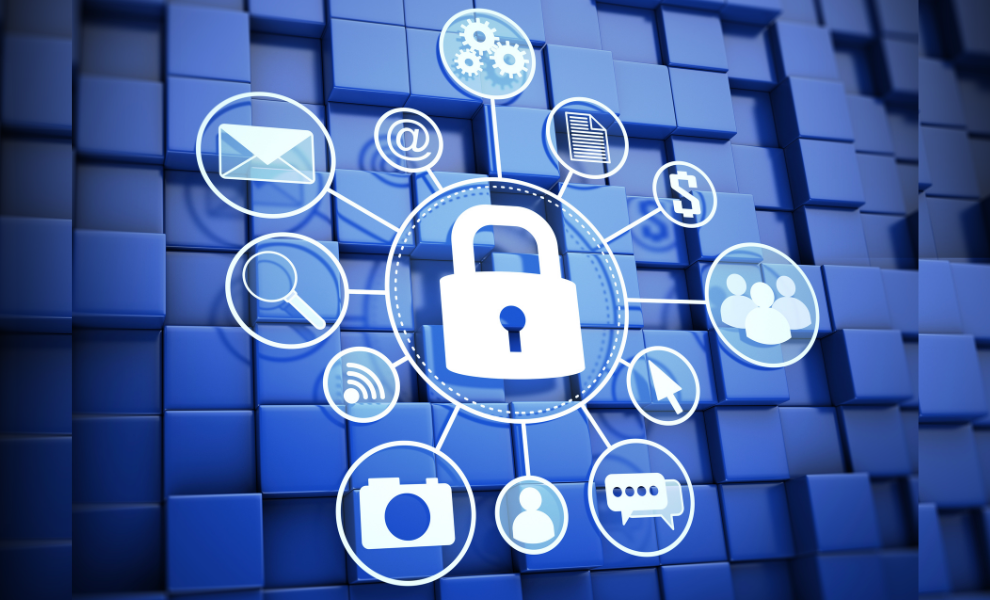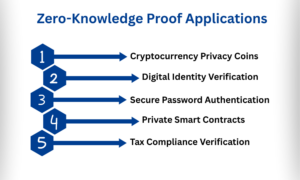You need to prove you’re old enough to enter a venue, but don’t want to share your exact birthdate or other personal details on your ID. What if you could simply verify your age without revealing anything else? This is the gist of zero-knowledge proof.
Verification of information without disclosing private information is made feasible by zero-knowledge proofs. This is something increasingly valuable in our hyper-connected world. This blog will discuss the concept of ZKPs in detail.
What Are Zero-Knowledge Proofs (ZKPs)?
Zero-knowledge proofs are the cryptographic protocols that allow one party (the prover) to convince another party (the verifier) that a statement is correct. The process operates without disclosing any extra information exceeding the validity of the statement itself.
ZKPs were developed in the 1980s by MIT researchers Shafi Goldwasser, Silvio Micali, and Charles Rackoff. They solve what once seemed like a paradoxical problem: how to prove you know something without showing what you know.
The technical distinction of ZKPs is in their three fundamental properties:
- Completeness: If the statement is true, then an honest prover will persuade an honest verifier.
- Soundness: If the statement is not true, there is very little chance that a dishonest prover will persuade an honest verifier.
- Zero knowledge: The verifier gains no knowledge whatsoever beyond the correctness of the statement.
How Zero-Knowledge Proof Works?
ZKPs are technically implemented using intricate mathematical structures such as polynomial commitments, interactive or non-interactive protocols, and elliptic curve cryptography. Zk-SNARKs transform computational problems into algebraic equations that enable verification without revealing the underlying solution.
The prover generates computational witnesses (private information) and creates cryptographic commitments to these witnesses. Through careful mathematical transformations involving homomorphic encryption and probabilistic checkable proofs, the prover generates a succinct proof that the verifier can check against public parameters.
The genius lies in the verification being exponentially faster than redoing the original computation, typically completed in milliseconds even for complex statements.
Ways Zero-Knowledge Proofs Enhance Privacy and Security Online
Beyond individual privacy, ZKPs are strengthening system wide security across many applications. In blockchain networks, they enable private transactions while maintaining the public verifiability required for trust.
Authentication techniques eliminate the risk of password storage by displaying credentials without transmitting or keeping real passwords. They enable companies to show regulatory compliance for enterprise compliance without revealing client or proprietary information.
Most promising, perhaps, is how ZKPs make confidential computing possible – performing calculations on encrypted data without first decrypting it, opening the door to secure multi-party computation in which mutually distrustful parties can cooperate without trading security or privacy.
Zero-Knowledge Proof Applications-
Cryptocurrency privacy coins:
Zcash uses zk-SNARKs to shield transaction details while maintaining blockchain integrity-users can prove payments are valid without revealing amounts, sender, or recipient information.
Digital identity verification:
ZKPs are used by services such as Polygon ID to allow users to verify their job status without disclosing the name of their company or to prove they are over 18 without disclosing their precise birthdate.
Secure password authentication:
ZKPs enable systems to confirm that you are aware of your password without the password ever leaving your device, as opposed to transmitting passwords over networks where they could be intercepted.
Private smart contracts:
Platforms like Aleo enable confidential smart contracts where transaction logic is executed privately but remains verifiable, perfect for sensitive business logic that shouldn’t be public.
Tax compliance verification:
ZKPs allow taxpayers to mathematically prove they’ve paid the correct amount without revealing exact income figures or financial details satisfying auditors while preserving financial privacy.
Renowned Businesses Currently Using ZKP Technology–
ING Bank: Zero-knowledge range proofs are being used by the Dutch financial behemoth to confirm that customers’ finances match specific requirements without having access to their precise account balances. This preserves regulatory compliance while increasing the privacy of loan approvals.
Ernst and Young: The accounting giant created a ZKP protocol that allows their corporate clients to conduct secret Ethereum transactions. This enables companies to profit from blockchain technology without disclosing private financial information to rivals.
JP Morgan Chase: Their enterprise blockchain platform Quorum incorporates zero-knowledge security layer technology to shield transaction values and participant identities. It solves the key challenges of transaction privacy in financial blockchain implementations.
Microsoft: The software giant employs ZKPs in their decentralized identity solutions, which enable users to demonstrate credentials like as professional certificates or school backgrounds without disclosing underlying personal information or generating identity trails that can be cross-referenced.
Final Lines!
In addition to improving privacy, ZKPs radically changes the balance of power between people and organizations. As regulatory frameworks like GDPR and CCPA continue emphasizing data minimization, businesses that use ZKP technology early will have competitive advantages and reduced compliance burdens.
For the latest updates on Zero-Knowledge Proofs and more, keep visiting us at HiTechNectar.
Also Read:
Detailed About Best Zero Trust Vendors
Exploring Blockchain Technology Beyond Cryptocurrency



